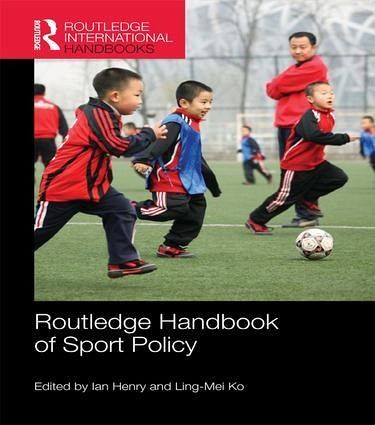Nicht lieferbar

Routledge Handbook of Sport Policy
The Routledge Handbook of Sport Policy is the only book to offer a comprehensive overview of current perspectives, techniques and approaches to the analysis of sport policy around the world. The book introduces a diverse range of approaches to policy analysis across the full range of political and societal contexts. With contributions from leading policy analysts around the world, including Europe, North America, the Middle East and Asia, this book is important reading for any student, researcher or professional working in sport management, sport development, sport and society, or mainstream p...
The Routledge Handbook of Sport Policy is the only book to offer a comprehensive overview of current perspectives, techniques and approaches to the analysis of sport policy around the world. The book introduces a diverse range of approaches to policy analysis across the full range of political and societal contexts. With contributions from leading policy analysts around the world, including Europe, North America, the Middle East and Asia, this book is important reading for any student, researcher or professional working in sport management, sport development, sport and society, or mainstream public policy, policy analysis or social policy.




